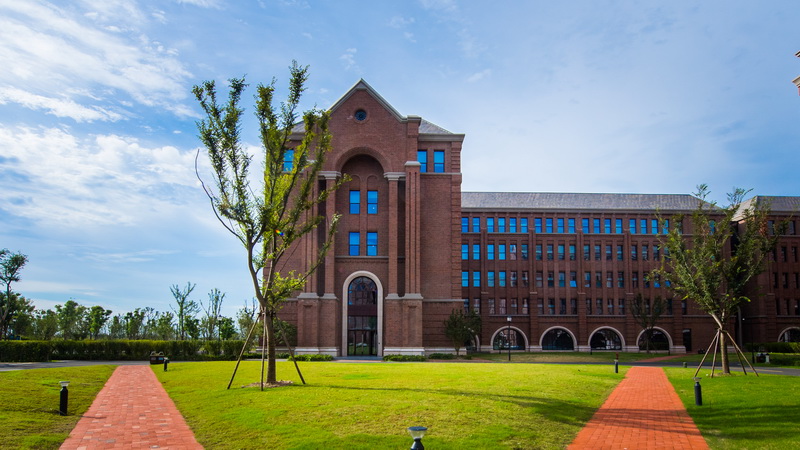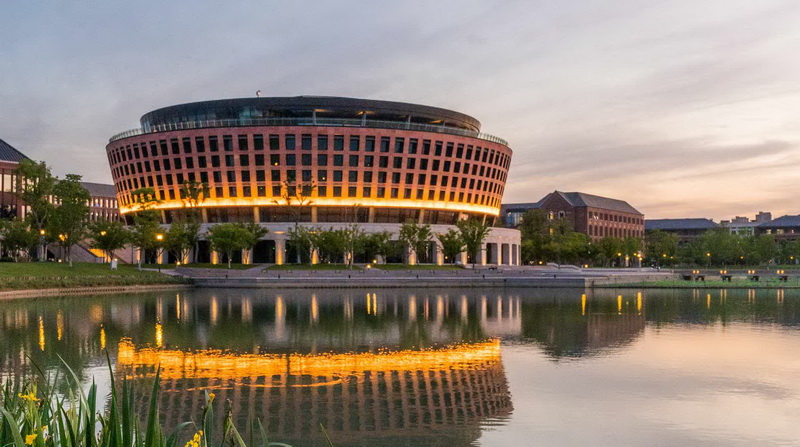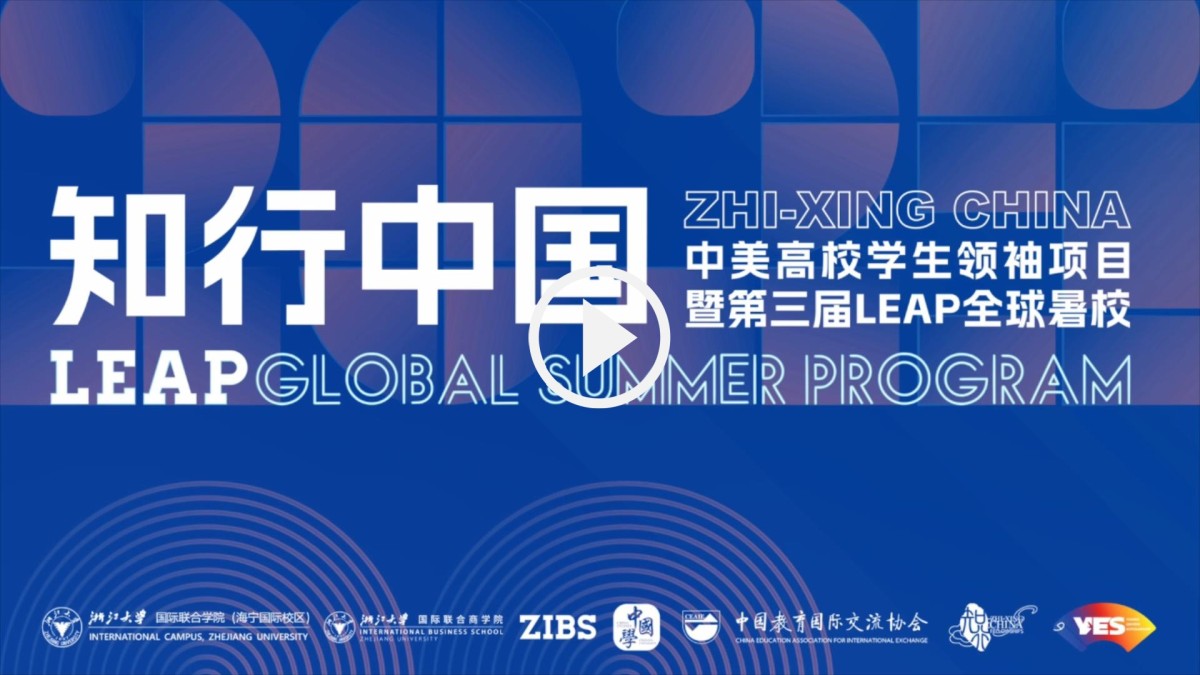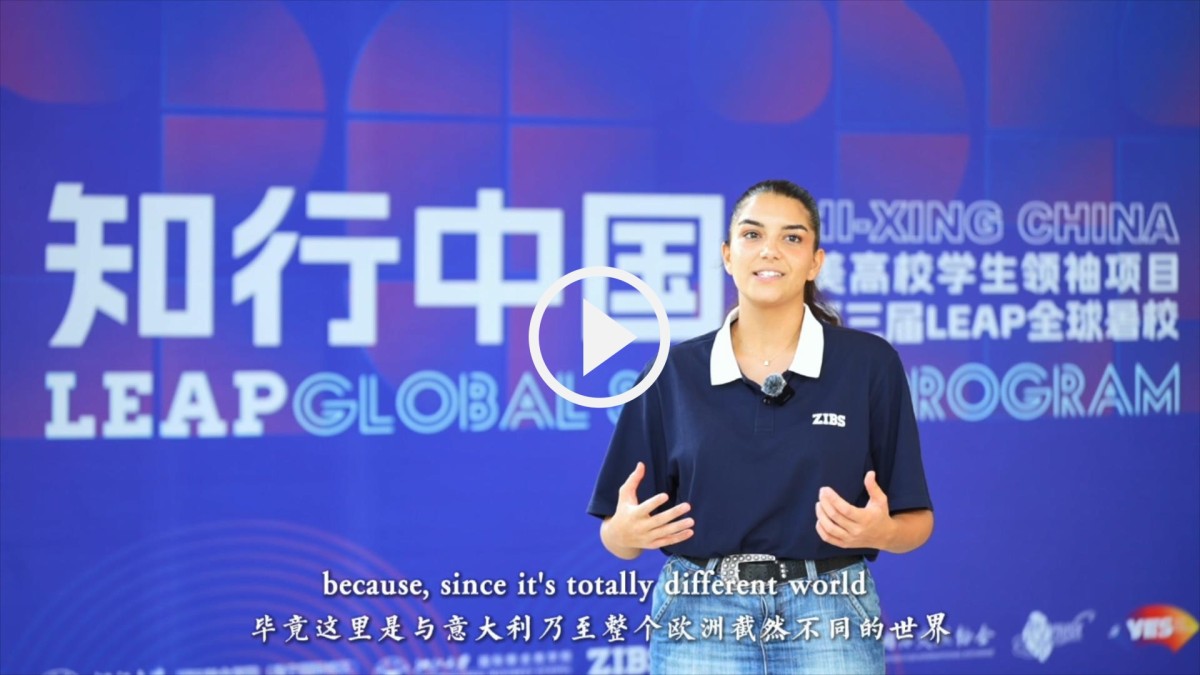On July 28, the “Zhi-Xing China: U.S.-China University Student Leaders Academy and LEAP Global Summer Program 2025” successfully concluded at Zhejiang University International Campus. Over 17 days of immersive learning and cultural experiences, 23 young participants from the United States, Italy, Germany, Hungary, alongside with 10 Zhejiang University students, explored Chinese tea culture, intangible culture heritage, fintech and cultural creativity industry, bringing this enriching journey to a fulfilling close.
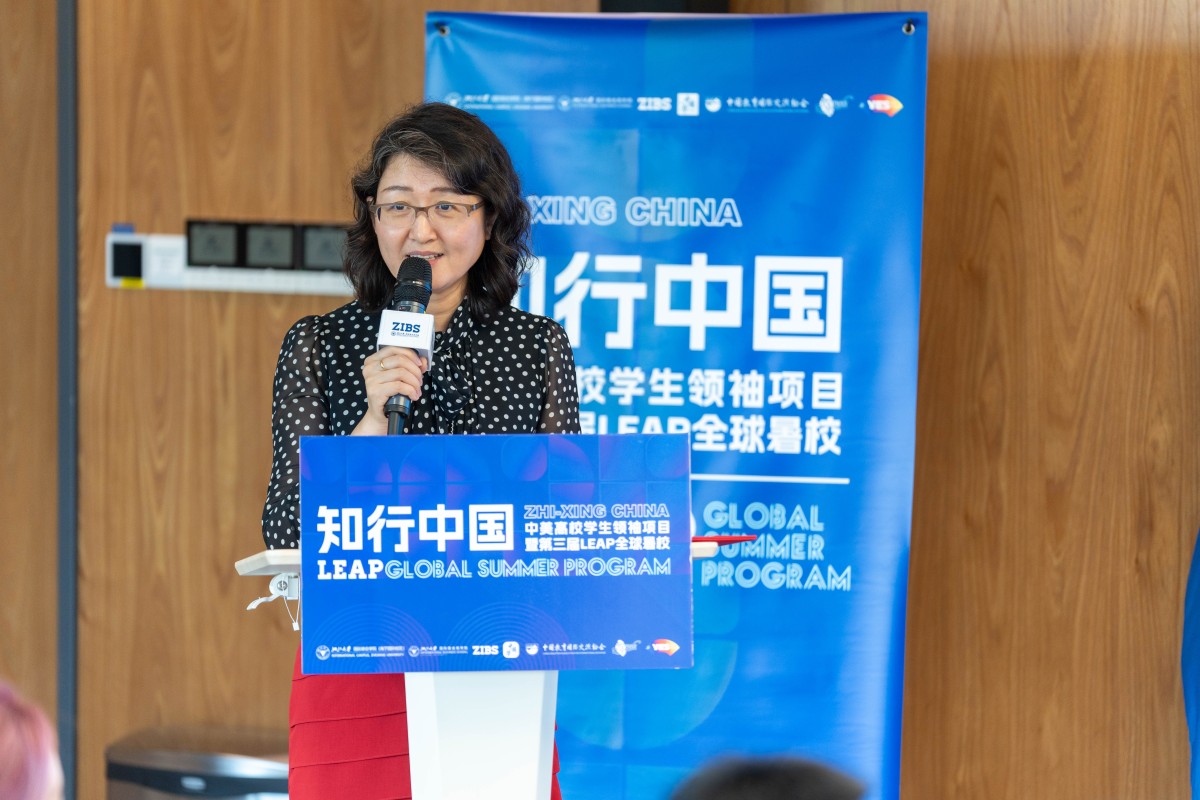
At the closing ceremony, LIU Yibo, Director of the Higher Education Cooperation Department at the China Education Association for International Exchange (CEAIE), congratulated all participants. She encouraged participants to "share authentic China stories upon returning home and serve as youth ambassadors for cultural exchange." She also urged students to "maintain your curiosity, enhance your professional competencies, and jointly address global challenges."
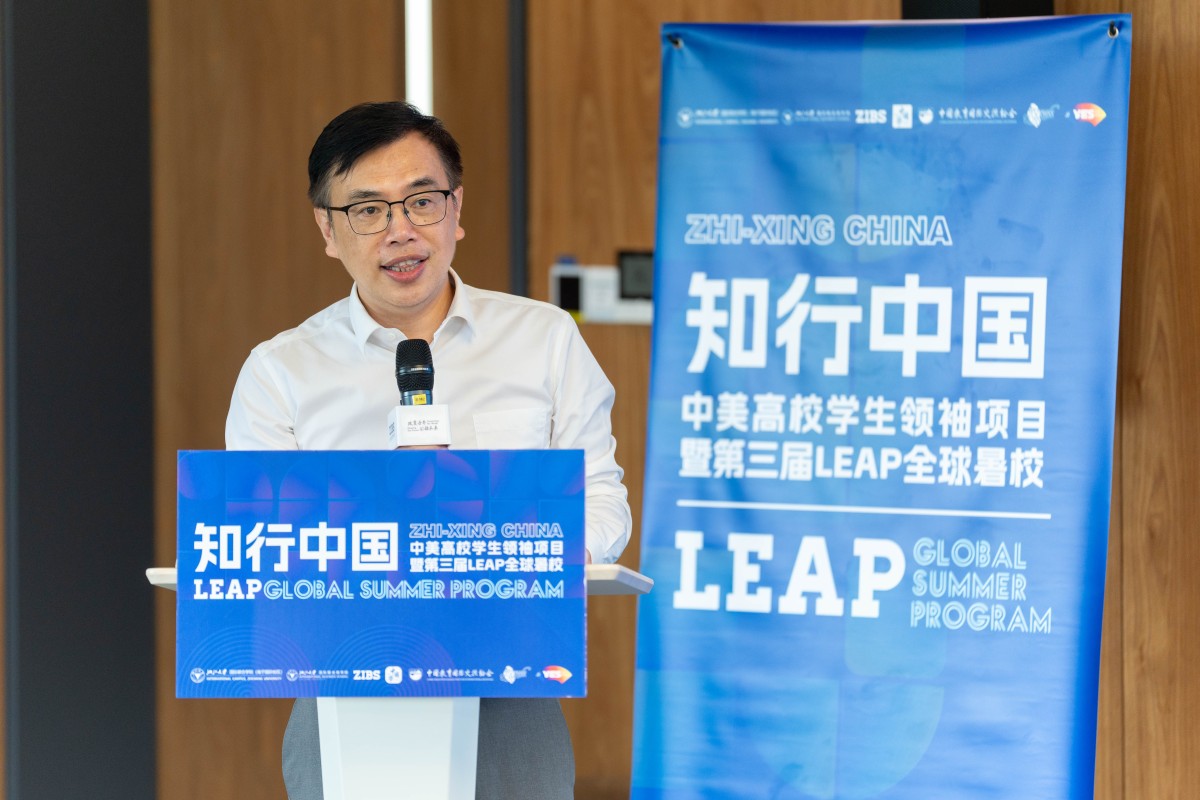
QU Haidong, Vice Dean of International Campus , Zhejiang University, expressed his hope that participants would transform the knowledge and wisdom gained in China into practical capabilities, building bridges for mutual learning, promoting meaningful cultural exchange, and fostering a world of mutual respect and harmonious development.
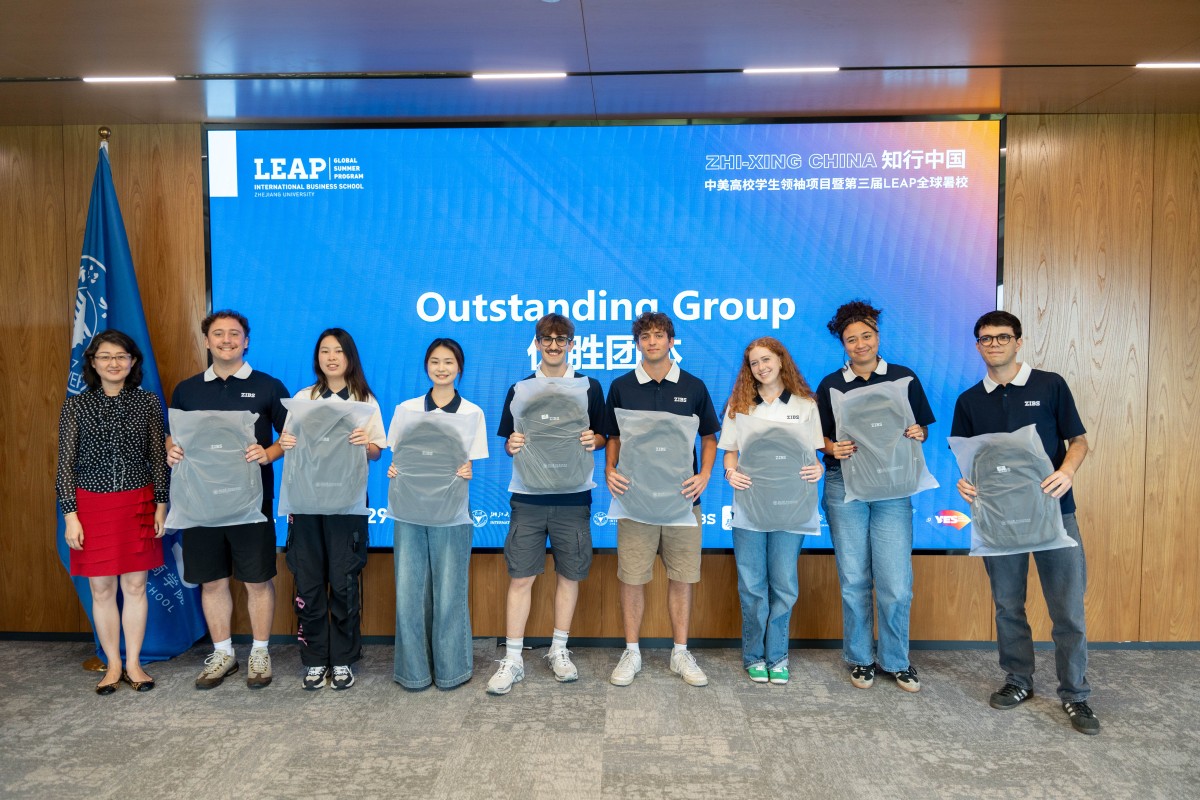
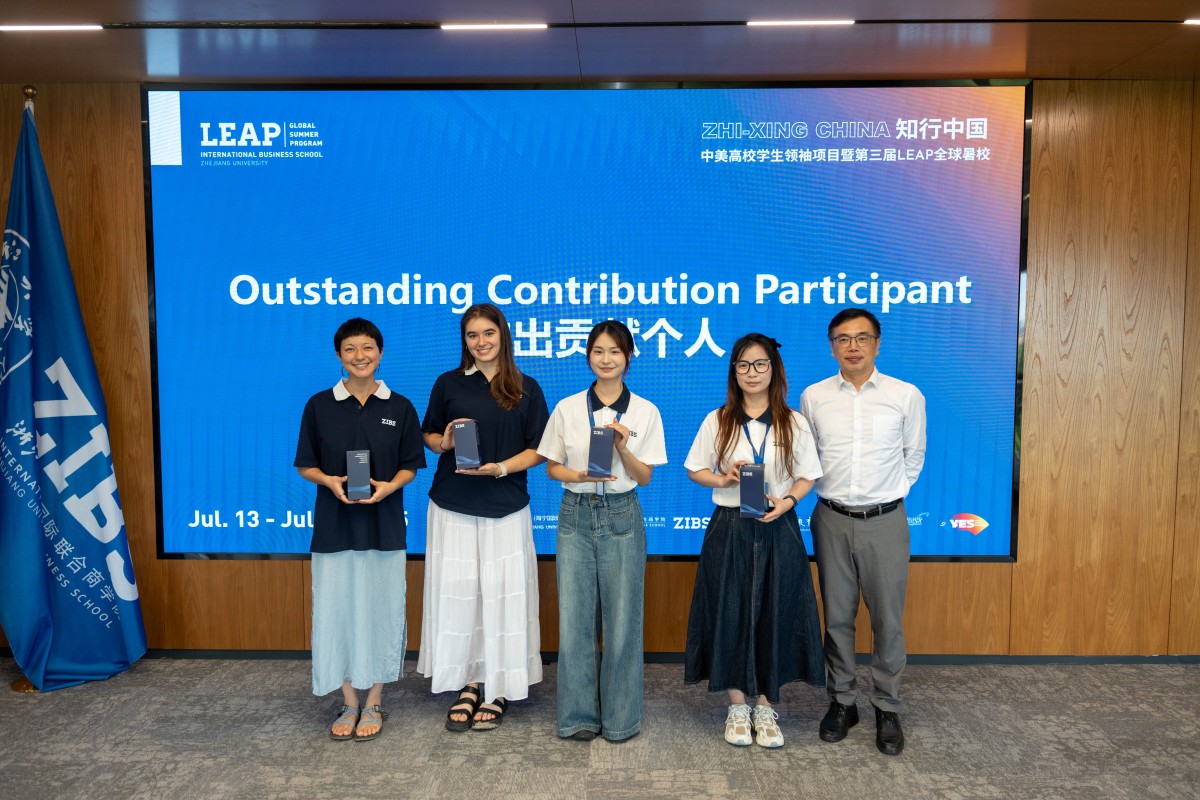
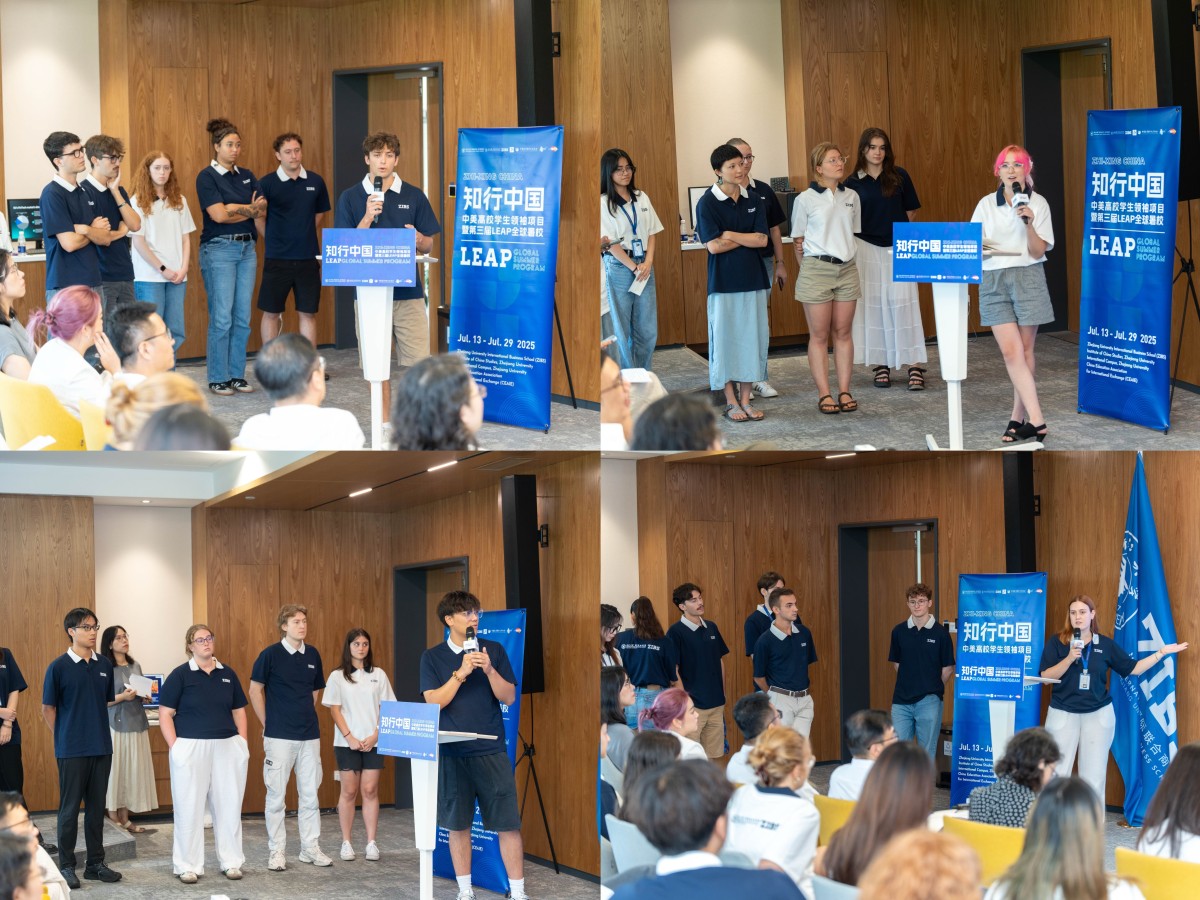
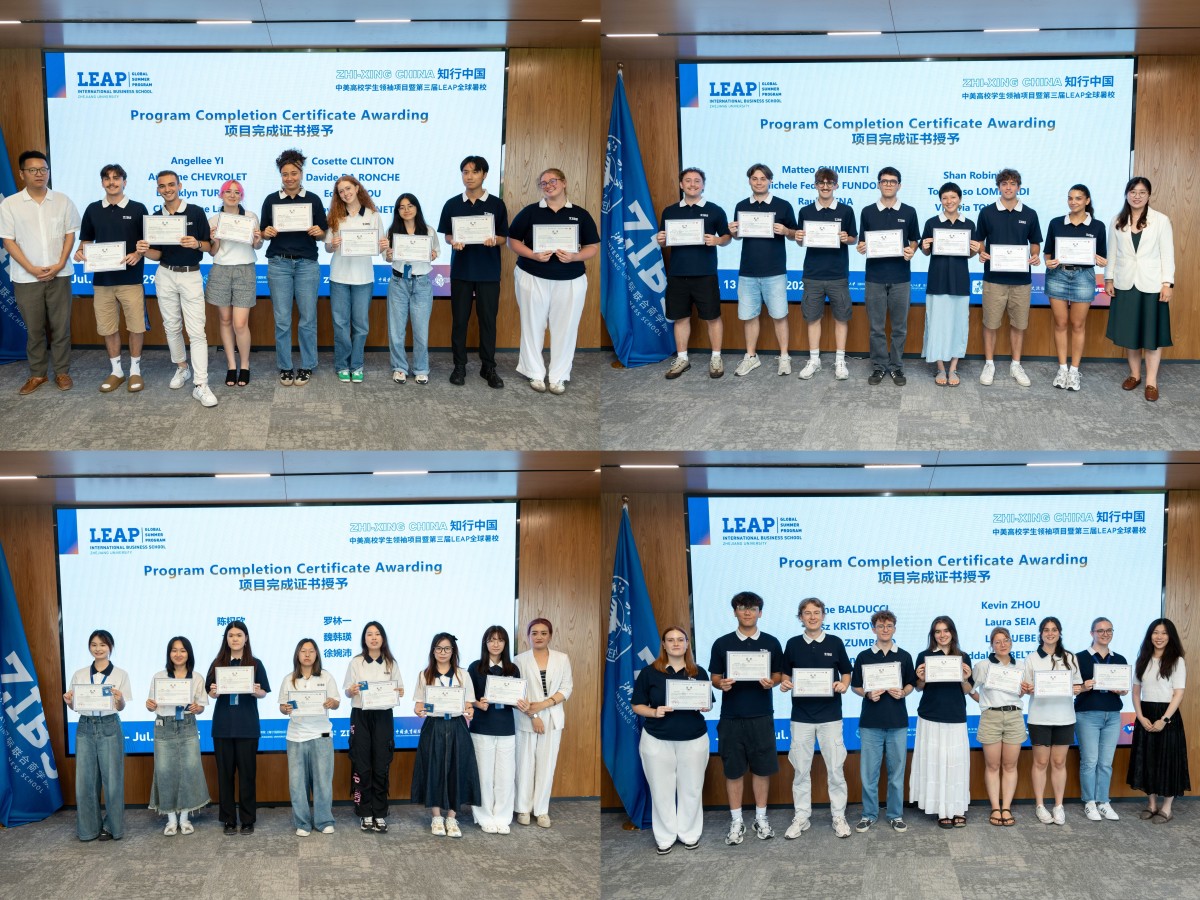
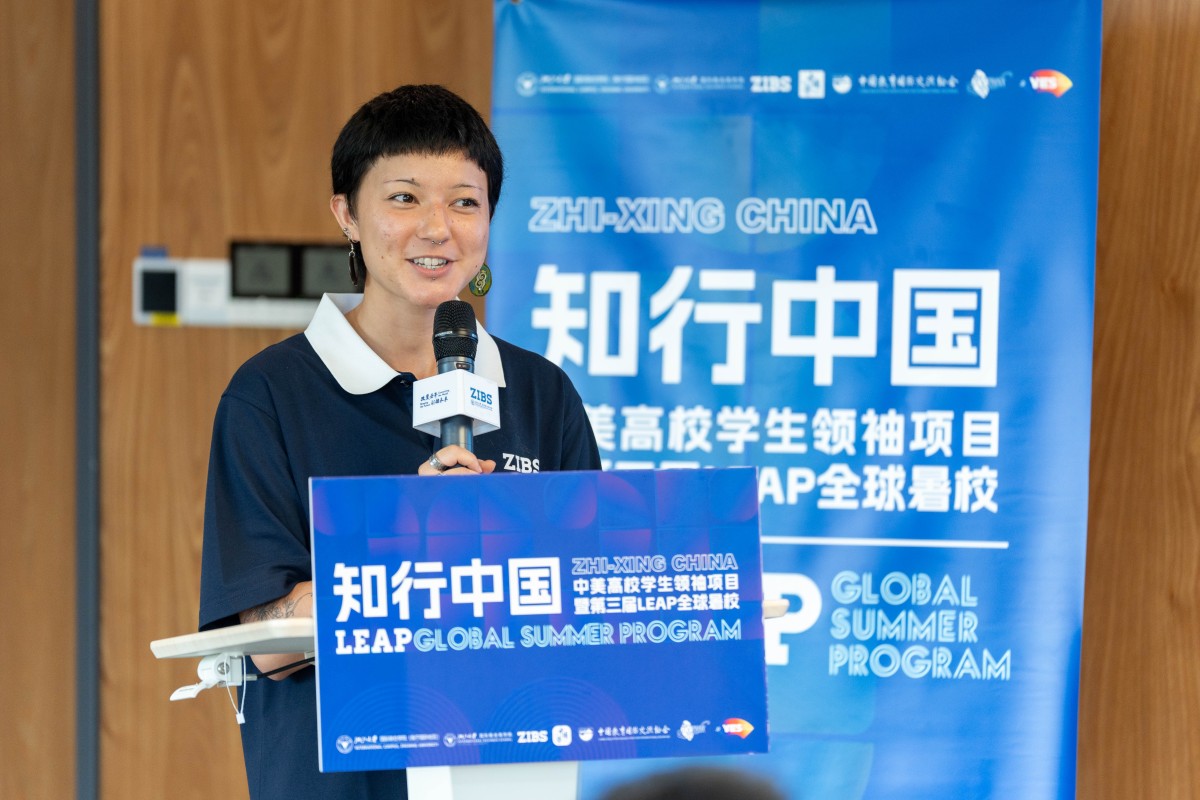
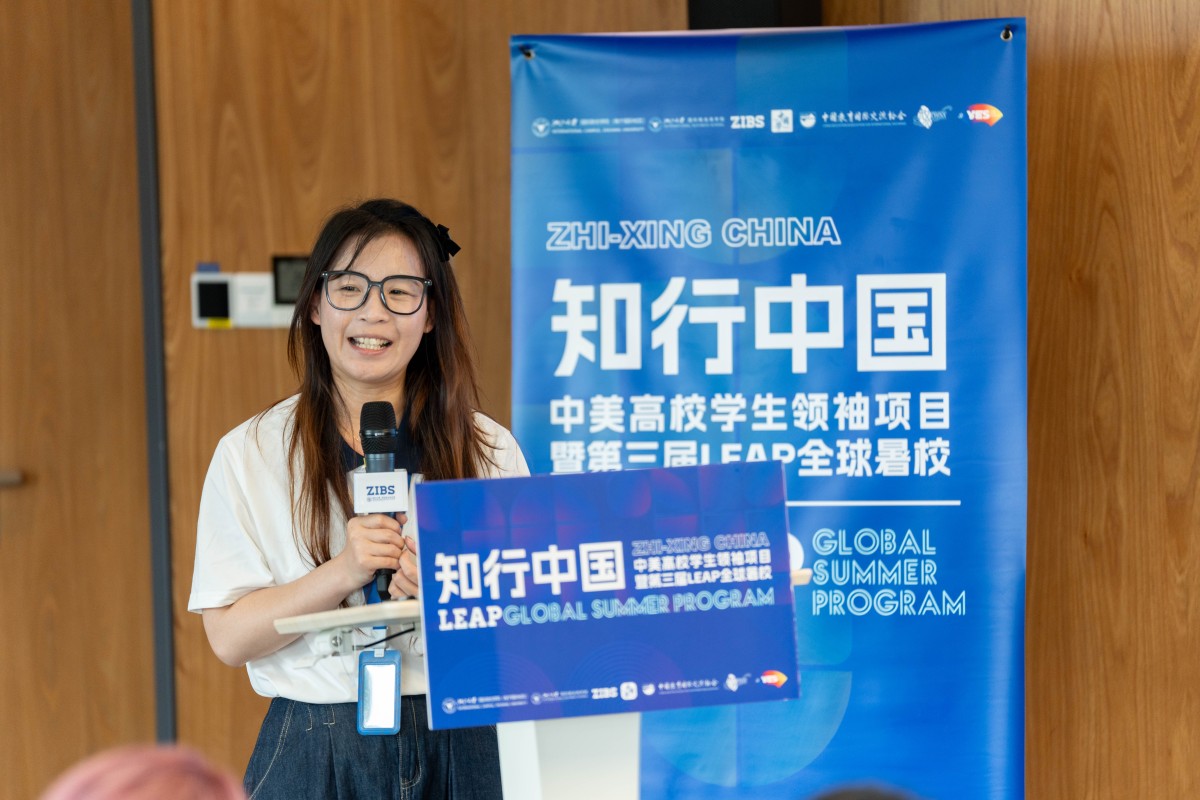
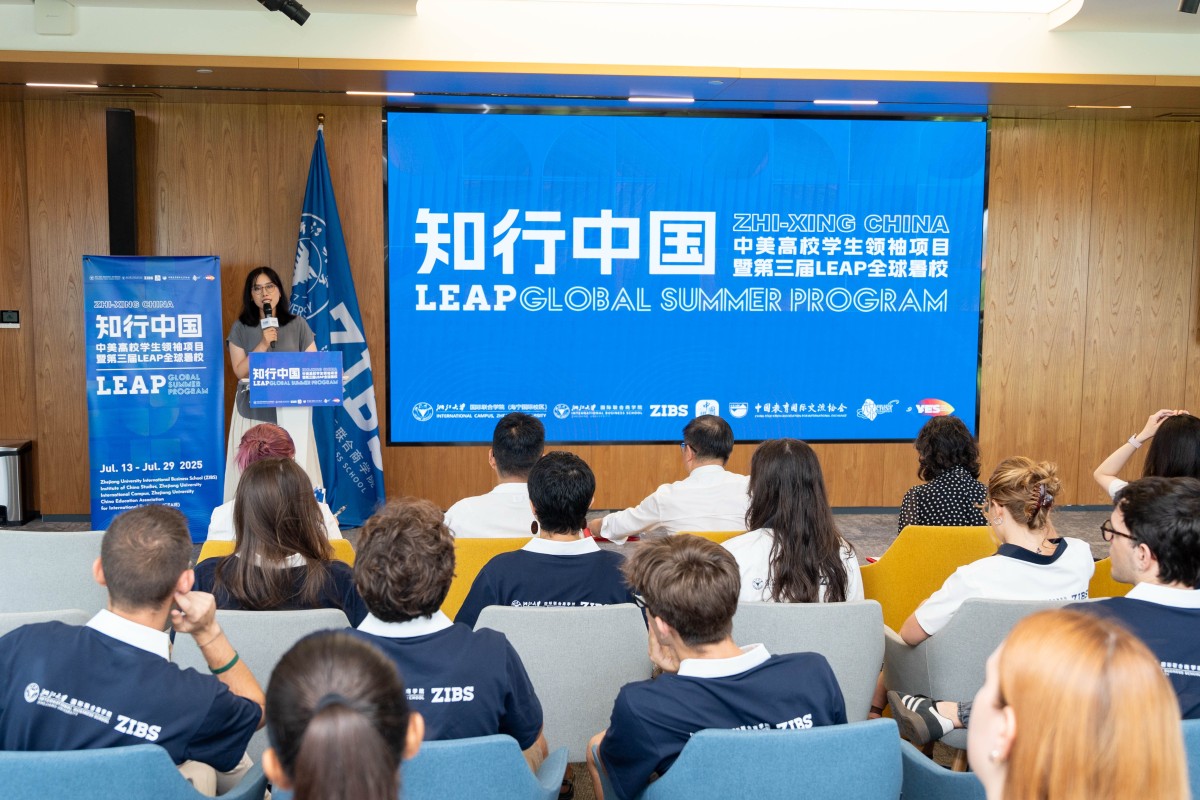
During the closing ceremony, participants showcased their learning outcomes through presentations and reflections, along with themed videos titled “China Through My Eyes.” LI Xuping, Deputy Director of the Institute of China Studies, XIAO Lan, Senior Program Officer of CEAIE presented the participants with certificates of completion and the YES (Young Envoys Scholarship) badges.
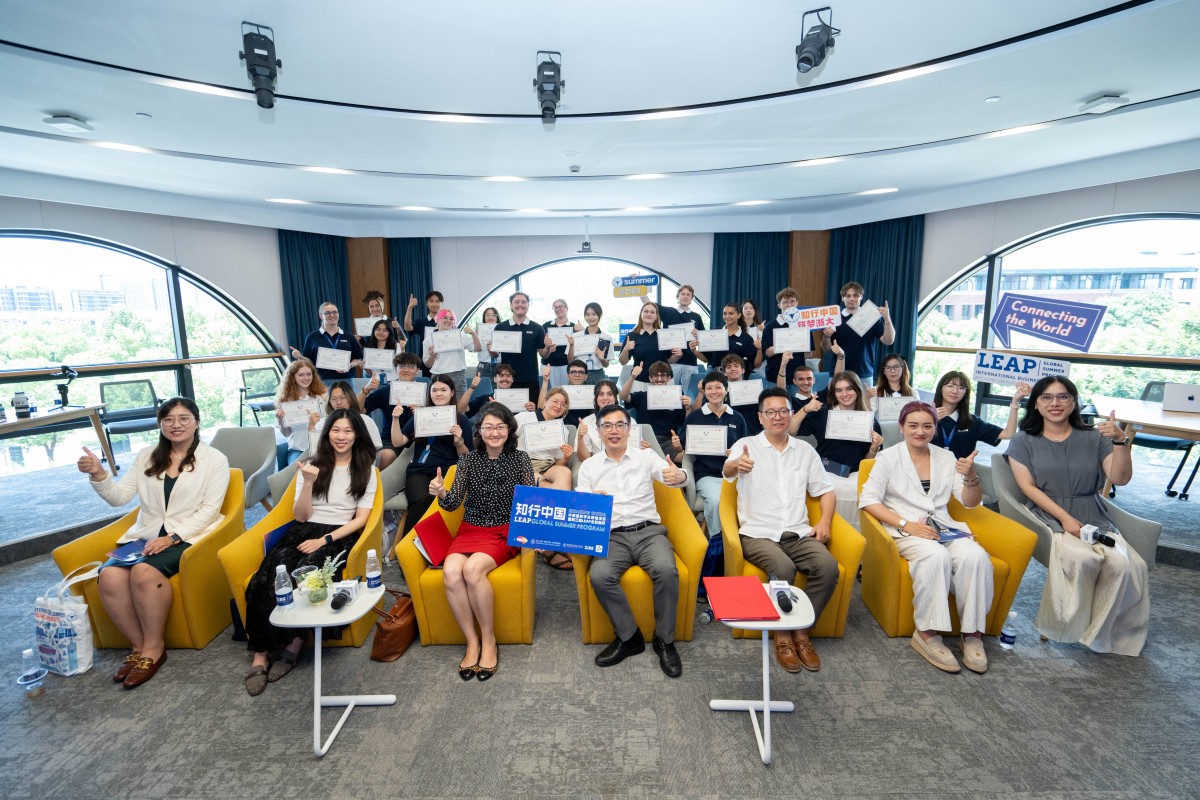
Over 17 days, focused on the topic of "Chinese Culture in a Global Context”, participants engaged in a series of diverse academic, language, and cultural activities.
Immersive Classrooms: Opening the Door to Chinese Culture
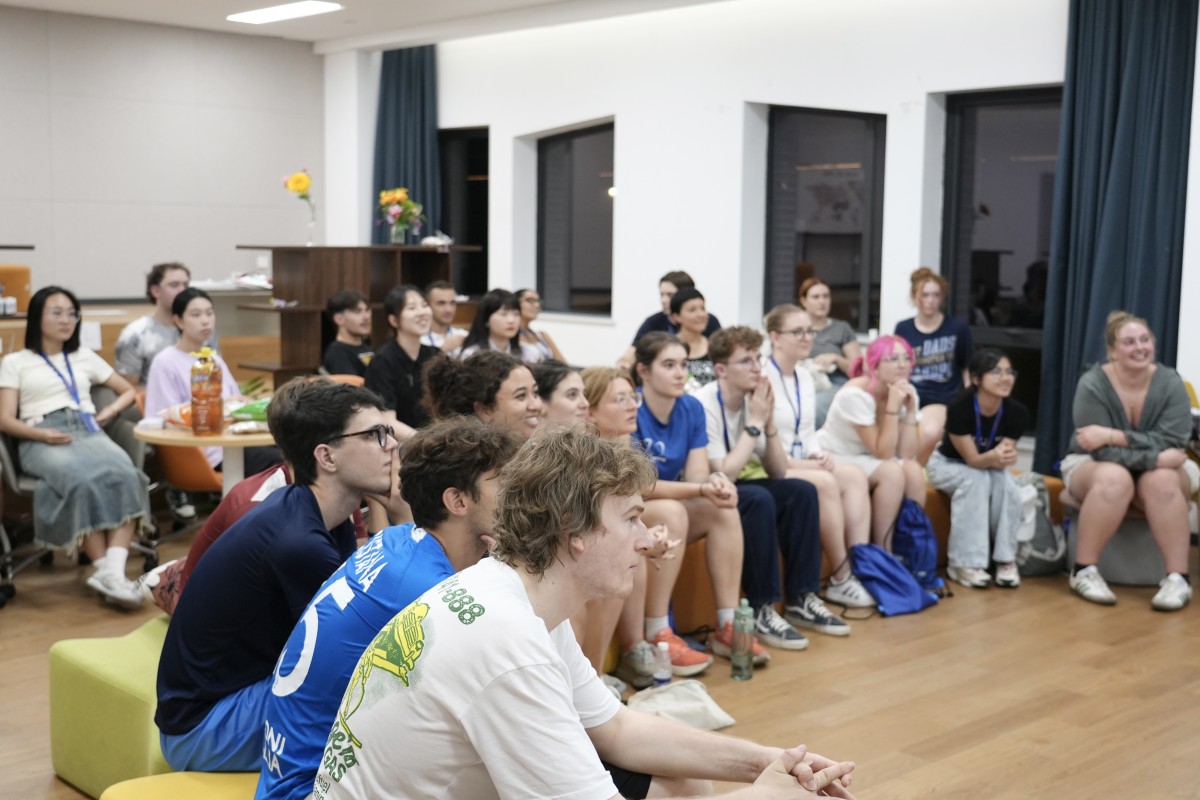
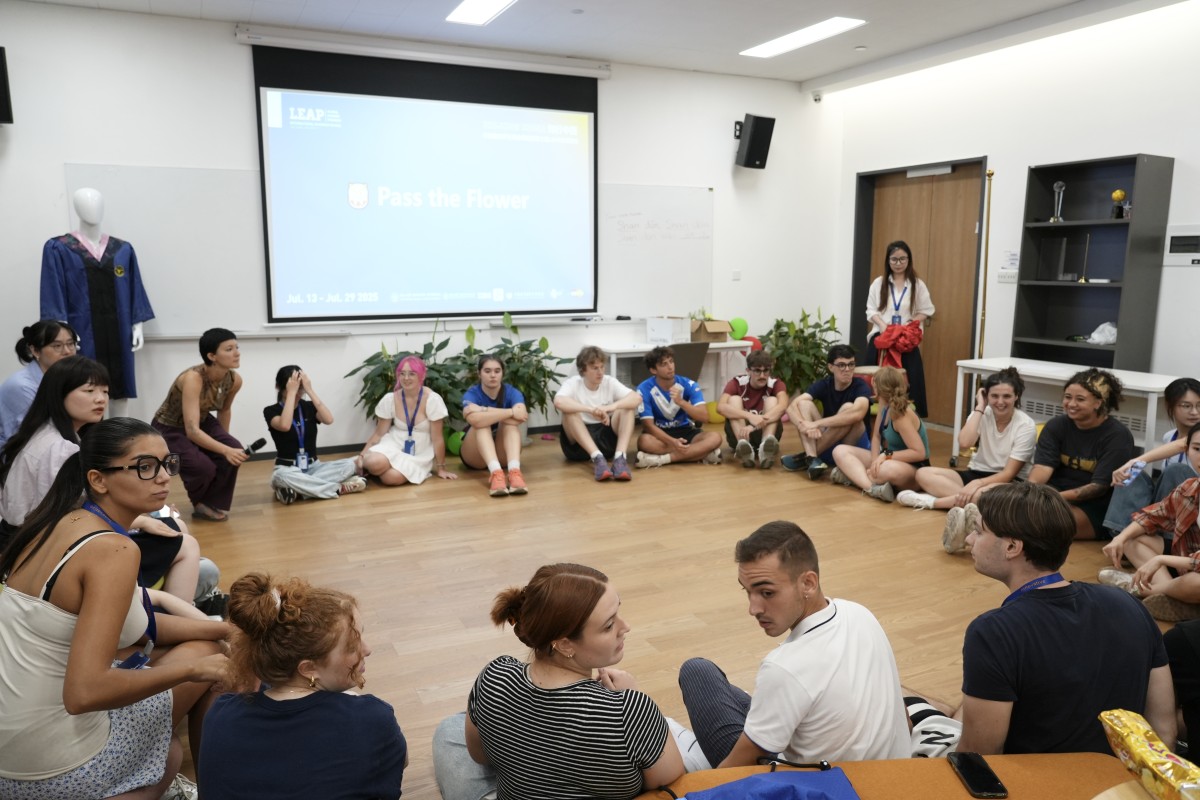
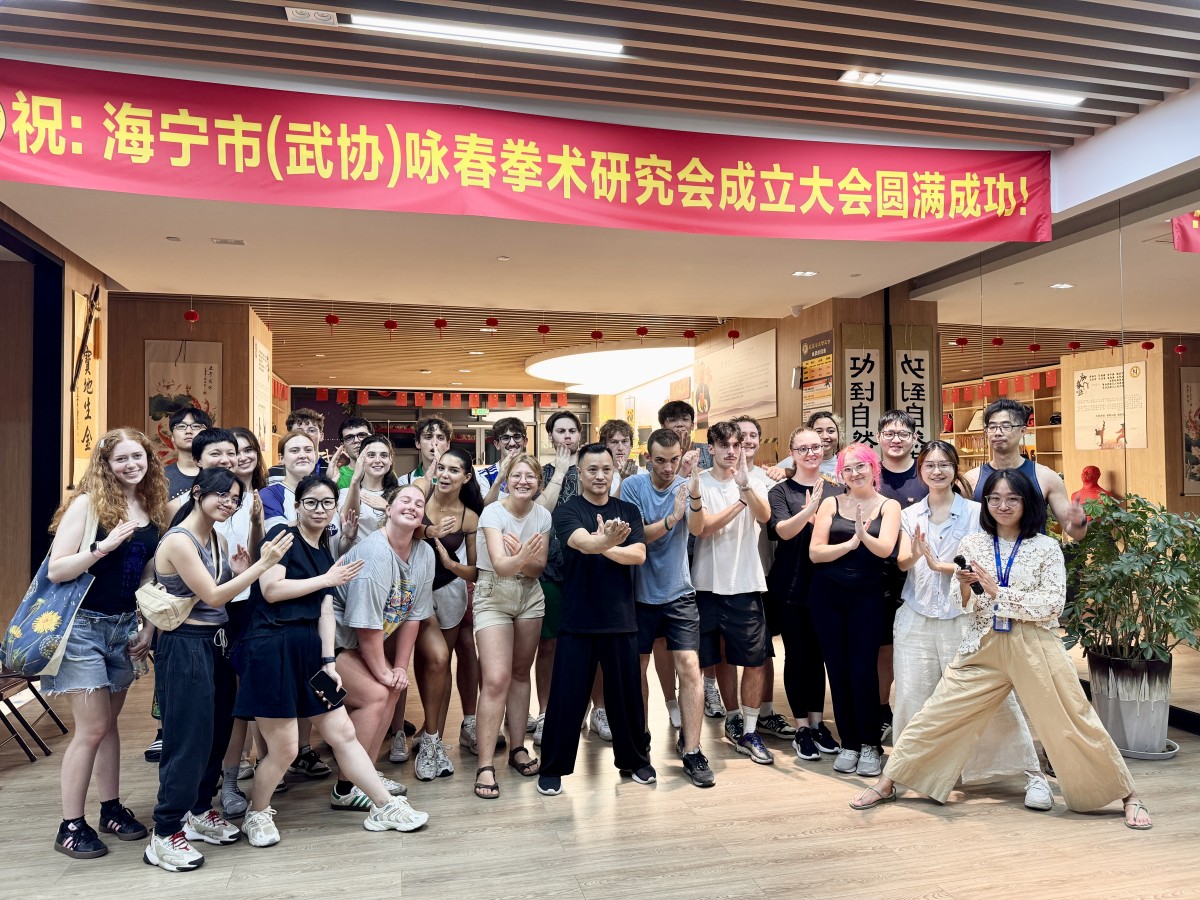
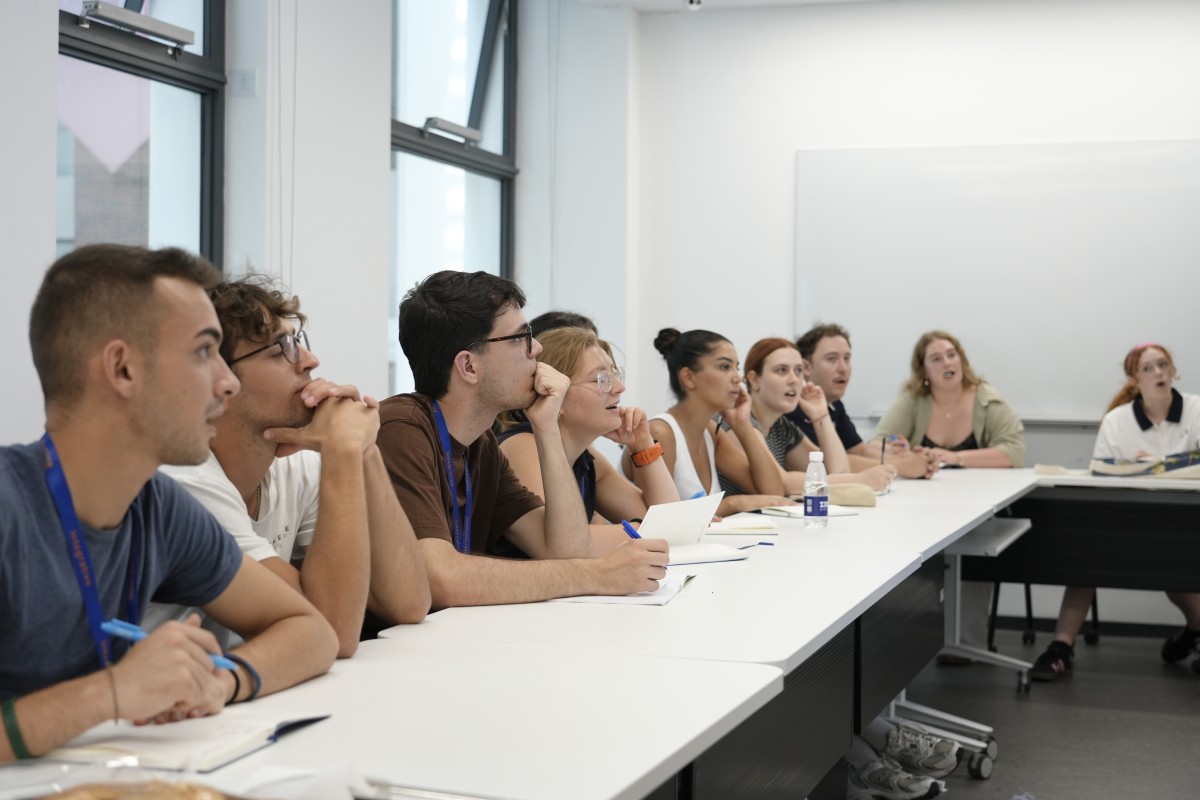
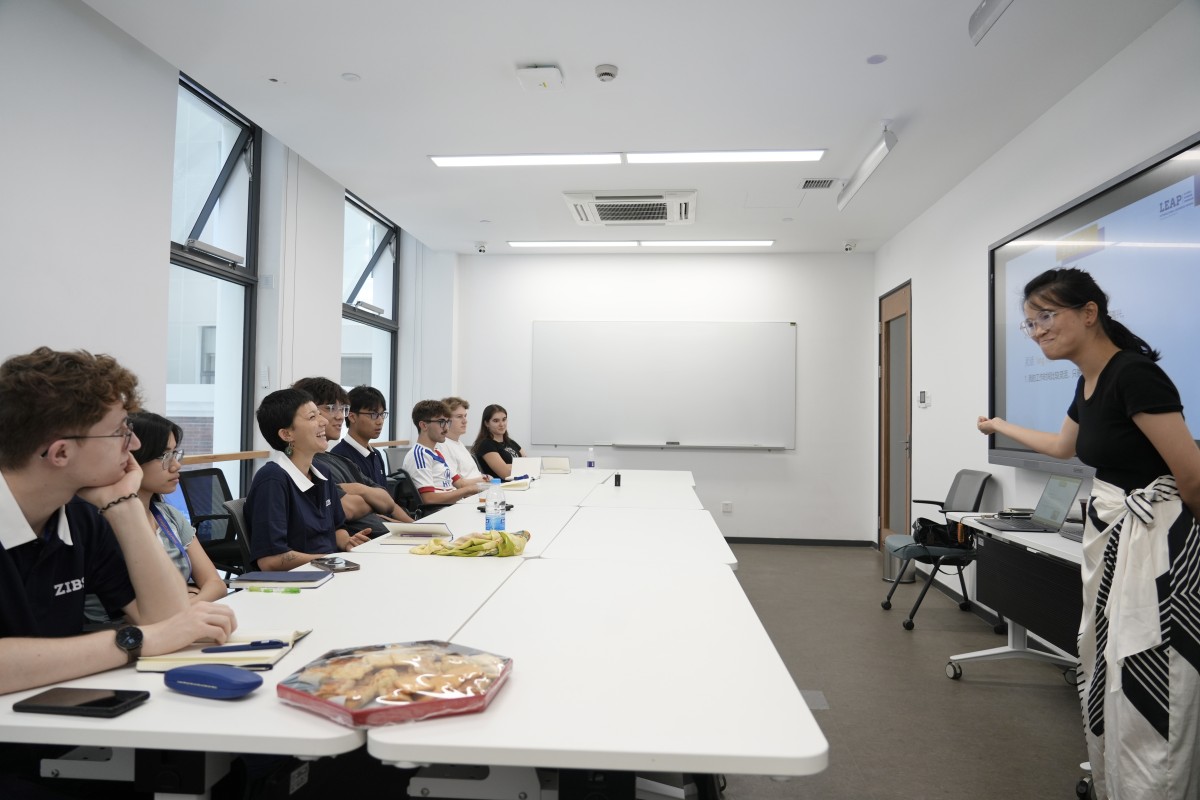
The Chinese language courses were an important component of the summer program, serving as the starting point for participants to engage with Chinese culture. Based on language proficiency, participants were divided into beginner and intermediate levels. The beginner class started with pinyin and basic characters, reinforced by fun games and situational dialogues to build a solid foundation; the intermediate class focused on business communication, improving expression through activities like mock negotiations and writing resumes in Chinese.
“Chinese Corner” in the evening buzzed with energy, as participants practiced their spoken Chinese, experienced Wing Chun, and made new friends in a relaxed setting—language learning happened naturally through real interaction.
In addition, four themed lectures provided a global framework for academic understanding of Chinese culture:
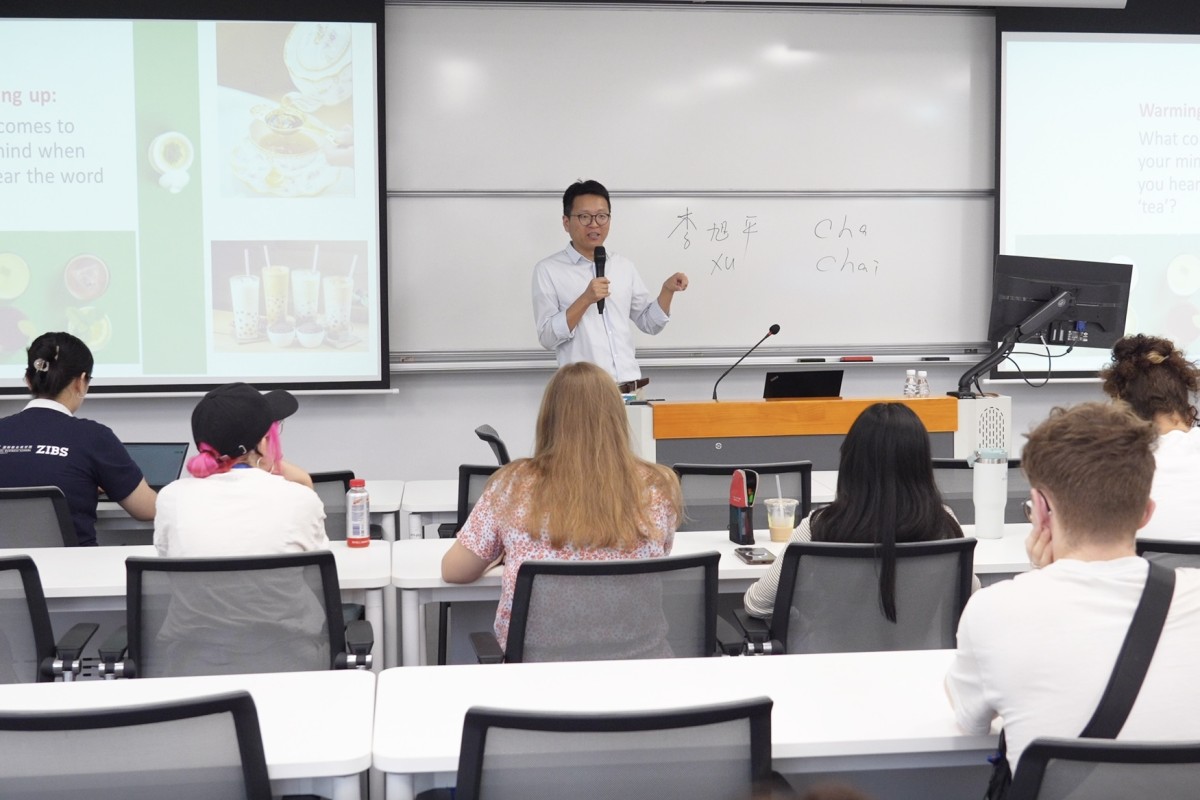
Professor LI Xuping from the School of Literature analyzed the global spread of tea culture from a linguistic perspective;
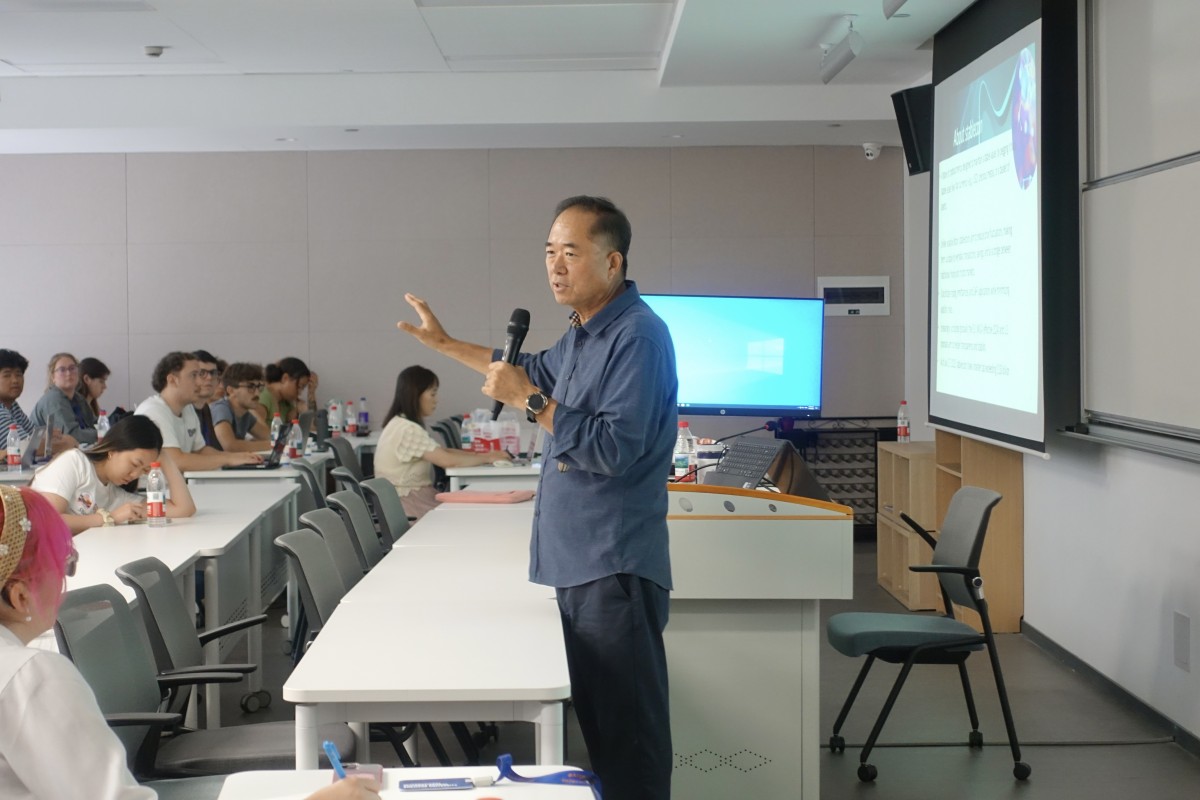
Professor ZHANG Ruidong from ZIBS explored the rise of China’s fintech industry in depth;
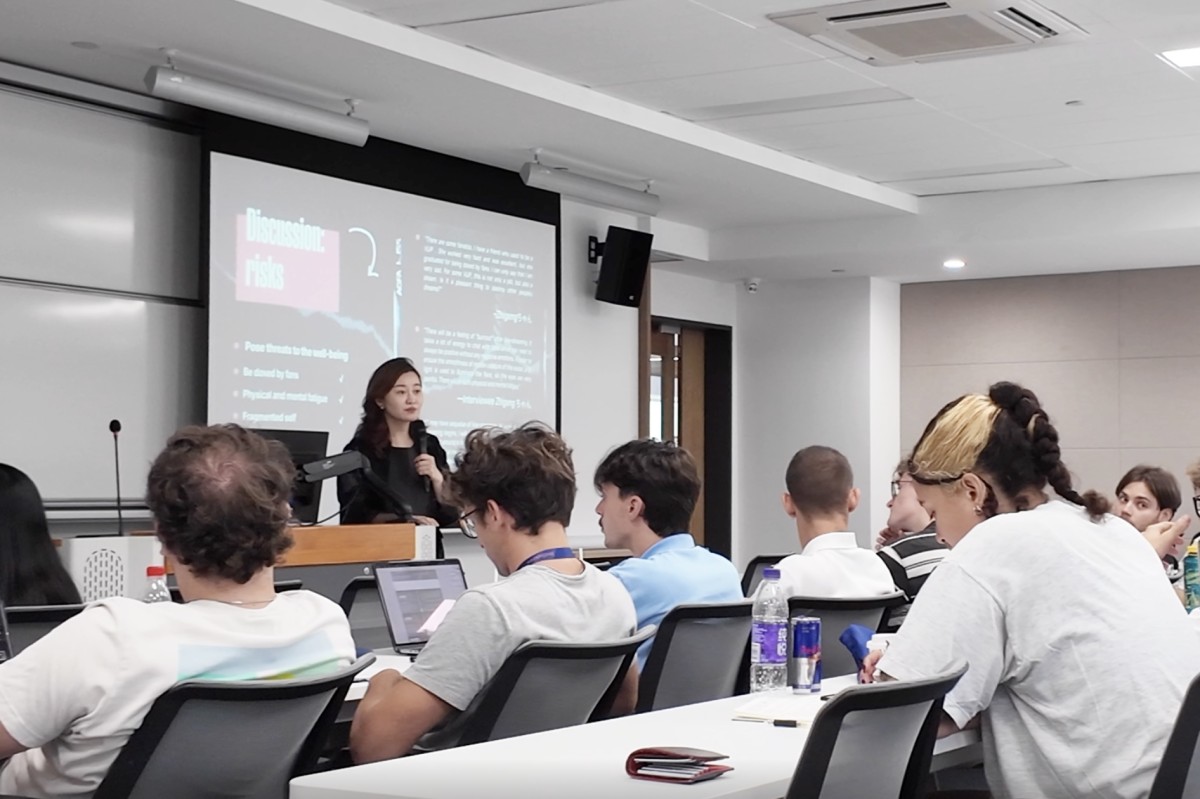
Vice Dean of College of Media and International Culture, Professor ZHAO Yupei discussed the modernizing and globalizing of traditional IP;
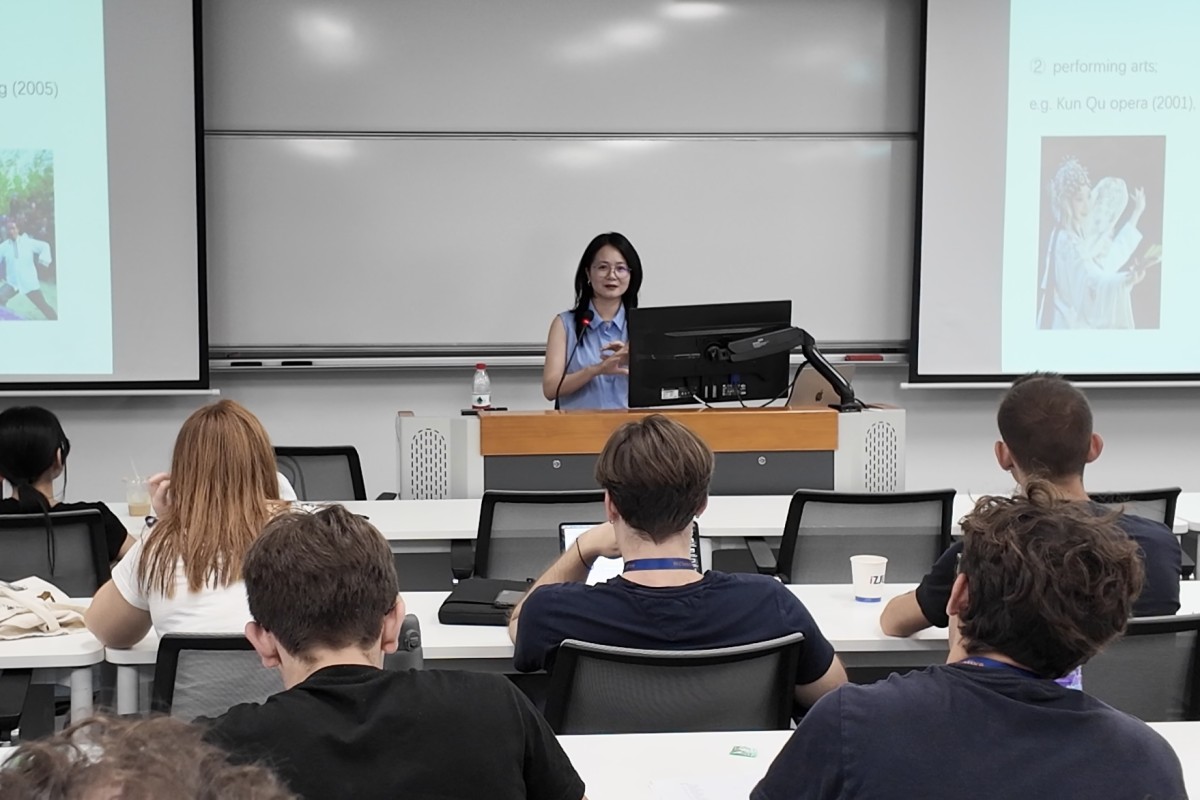
Associate Professor Fu Yi from the School of Art and Archaeology introduced China’s contemporary intangible cultural heritage.
Through the integration of academic exploration and language learning, participants were able to trace the context of Chinese culture and make a leap from surface-level recognition to deeper understanding.
Corporate Visits: Witnessing Innovation in China Firsthand
Participants experienced China’s cutting-edge industries up close:
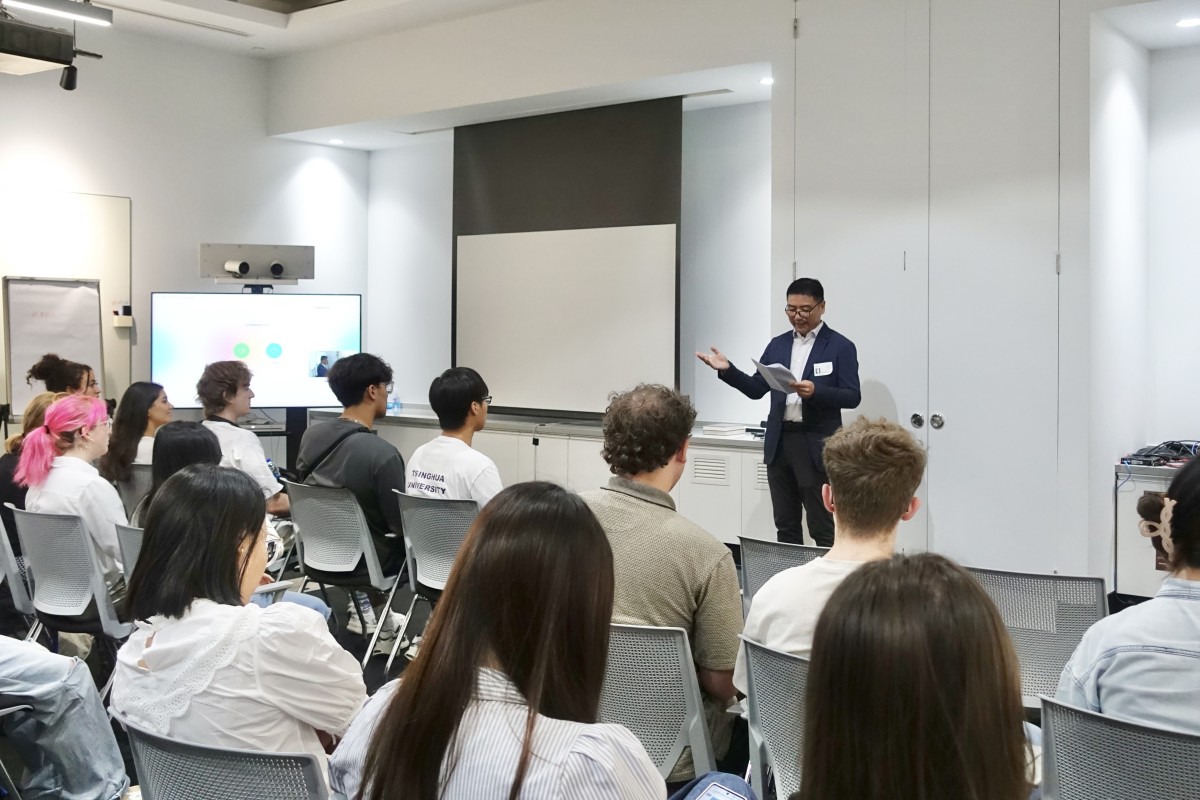
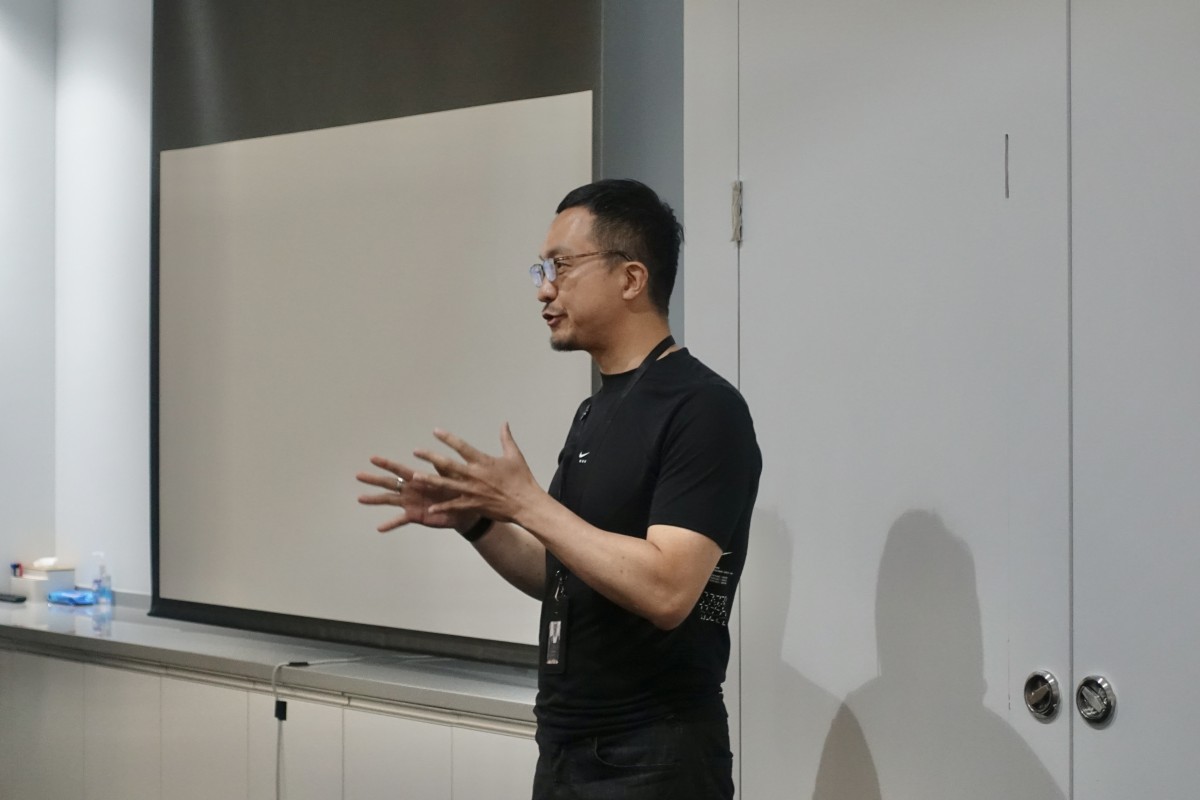
At Hangzhou’s “Six Little Dragons” exhibition hall, AI robots demonstrated real-time technical feedback, highlighting China’s prowess in artificial intelligence;At Nike’s Greater China HQ in Shanghai, participants explored how international brands localize their operations in China, cases like partnerships with athletes like LIU Xiang and YI Jianlian, revealing how global brands integrate with the Chinese market.
From tech to branding, these visits sparked dynamic discussions as participants examined “China opportunities” through an international lens.
Cultural Journeys: Understanding China on the Move
Rich cultural activities were an indispensable part of the LEAP summer program, allowing participants to truly feel the charm of traditional Chinese culture.


At the China National Tea Museum, participants savored tea while learning about Chinese aesthetics; In Yanguan Ancient Town, millennia-old tales at the Sea God Temple unfolded alongside hands-on shadow puppet craft;At Fang Huichuntang Traditional Chinese Medicine Hall, participants experienced the profound traditions of Chinese medicine. At the Zhu Bingren Copper Art Museum, they were captivated by the fusion of traditional bronze carving and modern aesthetics. At the China National Silk Museum, they tried tie-dye; and at the Western Returned Scholars Association, they learned paper cutting and tea ceremony. Each handmade craft carried their love for and memories of Chinese culture.


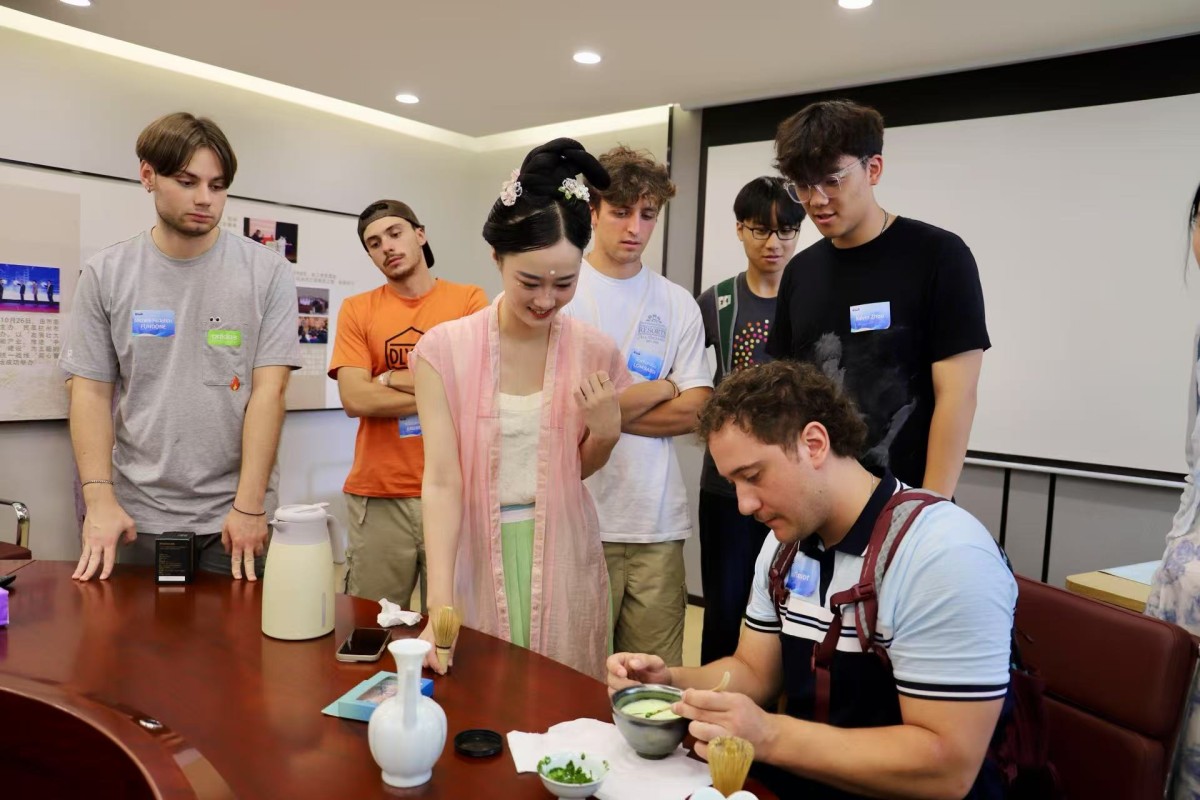
From ancient crafts to contemporary reinventions, these experiences connected students to China’s living cultural pulse.
From language classes to corporate visits, cultural immersion to in-depth exchange, these 17 days dissolved barriers and built enduring friendships. Though the program has ended, this fusion of knowledge, experience, and friendship forms a vital link for cross-cultural collaboration among international youth. May these young envoys carry the spirit of harmony in diversity to every corner of the world, co-authoring a new chapter of civilizational exchange.
Article and Photography: CHEN Danfeng, LUO Linyi, XU Wanpei, CHEN Quanxin
Editing: LI Songjiao
Editing in charge: LI Yinan
Reviewer: YANG Yi
Final Review: QU Haidong


